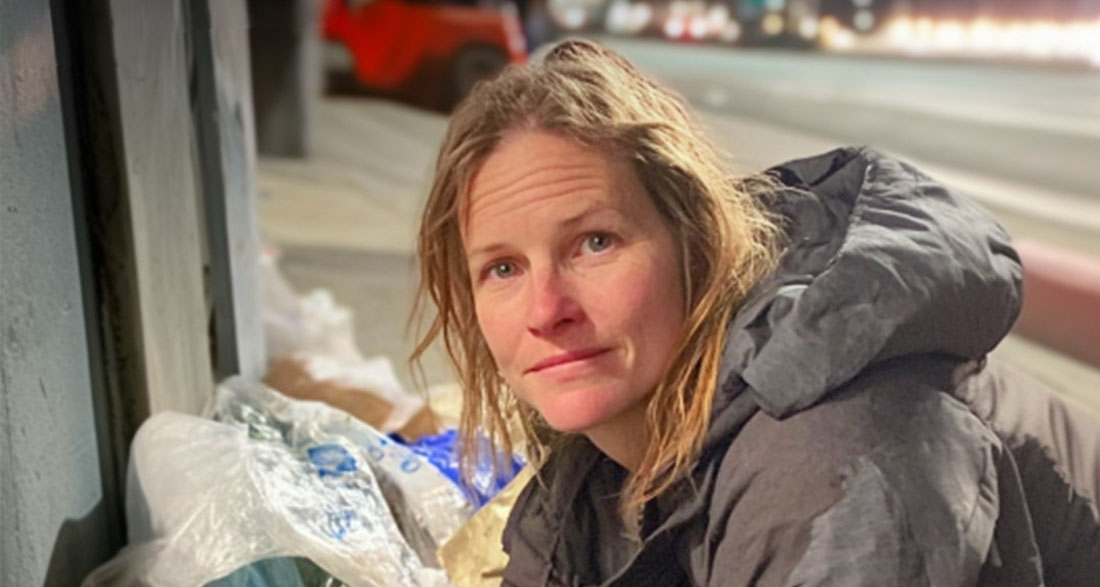I had everything money could buy: a huge mansion, expensive cars, and a bank account that never seemed to run dry. But deep down, none of it mattered. At sixty-one, I felt an emptiness that no luxury could fill. My life was hollow—no family, no legacy, and no one who truly cared about me as a person.
One cold evening, as I drove home from another business dinner, I noticed something unusual. A woman was rummaging through a trash can on the side of the street. Her clothes were torn, and she looked tired, but there was a determination in her every move that made me pause. I slowed my car and rolled down the window.
“Do you need help?” I asked cautiously.
She looked up sharply, her eyes guarded but piercing. Straightening her posture, she wiped her hands on her jeans and replied, “Are you serious?” Her voice was tough, almost challenging.
“Yes,” I said, stepping out of the car. “Do you have anywhere to stay tonight?”
She hesitated, scanning me as if trying to figure out my intentions. “No,” she admitted, her tone defensive.
Before I could overthink it, I said, “I have a guest house. You can stay there. Just for the night. No strings attached.”
She crossed her arms, clearly skeptical. “I don’t take charity,” she said flatly.
“It’s not charity,” I countered. “It’s just a place to stay. That’s all.”
After a long pause, her shoulders softened slightly. “Fine,” she said. “Just for one night. I’m Lexi.”
The drive to my estate was quiet. Lexi stared out of the window, her body tense, as if preparing for the worst. When we arrived, I showed her to the guest house, a converted garage with simple but cozy furnishings. The fridge was stocked, and the bed looked inviting.
“Here you go,” I said. “Make yourself comfortable.”
She gave a small nod. “Thanks,” she muttered, barely audible.
Days turned into weeks, and Lexi stayed. Slowly, she began to open up. Over shared meals, she told me her story. She’d once been an artist, holding small gallery shows and selling her work. But when her husband left her for someone younger, her life spiraled. Homelessness became her harsh reality.
Her honesty took me by surprise. I was used to people putting on masks around me, pretending to be someone they weren’t. Lexi’s raw truthfulness was refreshing. I found myself looking forward to our conversations. Her sharp wit and humor brightened the otherwise somber atmosphere of my home.
Then, one afternoon, everything changed.
I walked into the garage unannounced, looking for a tool. What I saw froze me in my tracks. The floor was covered with paintings of me. But these weren’t flattering portraits. They were dark and unsettling. In one, chains wrapped tightly around my neck; in another, blood poured from my eyes. One painting showed me lying in a coffin, lifeless.
Anger and betrayal surged through me. Was this how Lexi saw me? After everything I’d done for her?
That evening, at dinner, I couldn’t keep my emotions in check. “Lexi,” I said sharply, “what are those paintings in the garage?”
She froze, her fork hovering mid-air. “What paintings?” she asked, though her voice betrayed her.
“The ones of me. Chains, blood, a coffin. Care to explain?”
Her face turned pale. “I didn’t mean for you to see those,” she stammered.
“Well, I did,” I snapped. “Is that how you see me? Some kind of monster?”
Her voice trembled. “It’s not about you. Not really. It’s about how I felt—angry, trapped, powerless. You became the focus. It wasn’t fair to you.”
“Not fair?” I repeated, my voice rising. “I gave you shelter, food, and this is how you repay me?”
Tears welled up in her eyes. “I’m sorry,” she whispered. “I didn’t mean to hurt you.”
The tension between us was unbearable. Finally, I said, “I think it’s best if you leave.”
The next morning, I drove her to a nearby shelter. She packed her few belongings in silence, her eyes red and swollen. Before she stepped out of the car, I handed her a few hundred dollars. She hesitated, then accepted it with shaking hands.
Weeks went by, but my house felt emptier than ever. I missed her laughter, her stories, and even her blunt honesty. Despite everything, I couldn’t stop thinking about her.
One day, a package arrived at my door. Inside was a painting. This one wasn’t dark or haunting. It was peaceful, a portrait of me looking calm and content. Tucked inside was a note: “I’m sorry for how I left things. Thank you for your kindness. – Lexi.” Her name and phone number were written at the bottom.
For a long moment, I stared at the phone in my hand. Finally, I dialed.
“Hello?” she answered, her voice hesitant.
“It’s me,” I said. “I got your painting. It’s beautiful.”
“Thank you,” she said softly. “I wasn’t sure if you’d like it.”
“I do,” I replied. “And I’d like to see you again. Maybe over dinner?”
There was a pause, then a small laugh. “I’d like that,” she said.
Lexi told me she’d used the money I gave her to buy new clothes and find a job. She was saving for her own apartment and starting to rebuild her life.
As I ended the call, I realized something important. Lexi wasn’t the only one starting over. By helping her, I had begun to heal the emptiness in my own heart. And maybe, just maybe, we both deserved a second chance.
What do you think of the story? Share your thoughts in the comments below!


